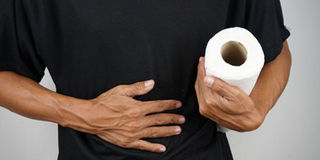How to control diarrhoea when you have HIV

Diarrhoea is common amongst people battling STDs.
I have noticed that a number of people living with HIV are now getting diarrhoea after they were stopped from taking septrin. Should they resume taking septrin? Anna
Septrin is a drug used to treat germs including bacteria and in people living with HIV, it has been used to prevent one of the fatal opportunistic infections called Pneumocystis carinii pneumonia (PCP), or more recently named Pneumocystis jiroveci pneumonia. PCP used to be the most common cause of death in people with HIV but today, due to using more effective HIV treatment, it is less common.
People living with HIV are at risk of getting PCP if their CD4 cell count falls below 200. However, since many are starting HIV treatment at diagnosis before the CD count falls, it may not be necessary in most cases to use Septrin.
Diarrhoea, which is the passing of loose or frequent stool is mostly caused by bacteria, viruses and parasites. Septrin given for PCP can actually kill bacteria that cause diarrhoea and prevent diarrhoea in people taking the drug.
It is not only people living with HIV infection that get diarrhoea although diarrhoea may be more common, more prolonged or more severe in such people due to opportunistic infections and other reasons, including drug side effects. Septrin should be given for diarrhoea according to the diagnosed cause and should not be given every time one has diarrhoea or its prevention since there are other effective non-drug preventive measures.
A person with diarrhoea, whether living with HIV or not should maintain a high standard of hygiene by washing their hands often or after using the toilet. Proper disposal of stool is also important. When hygiene is observed, even a person living with HIV will not require starting to take septrin again to prevent or treat diarrhoea given this and the many of its side effects.




